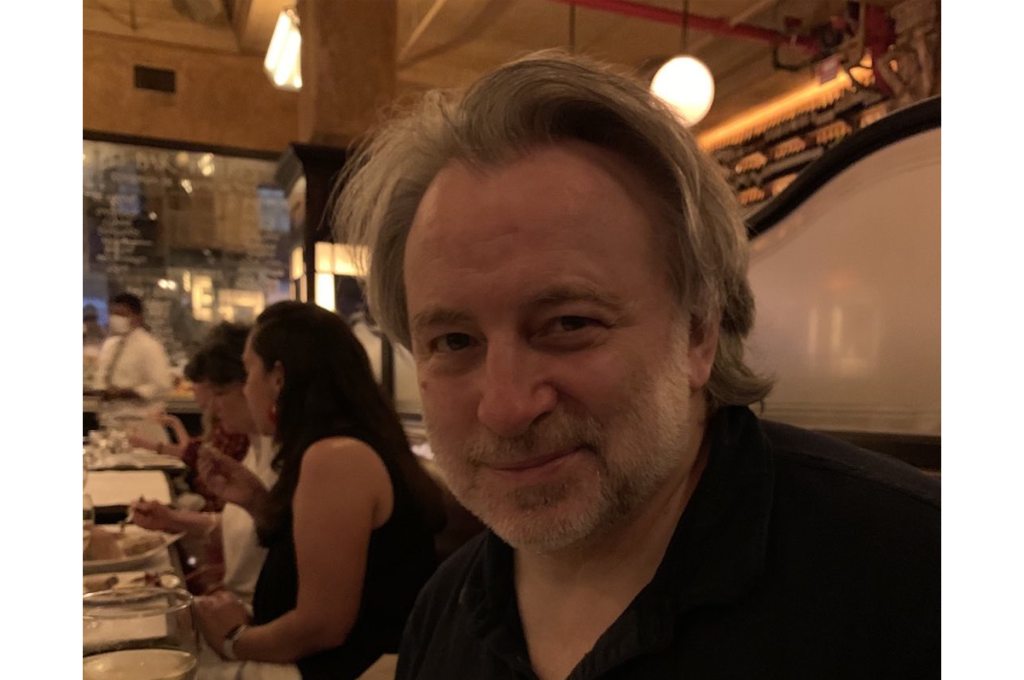New York
Four years ago, I had a stroke that left the right side of my body paralyzed and my speech so impaired that I sound like I’m talking under water. But the stroke also left me not giving a fuck what anyone thinks of me.
I didn’t know a thing about Instagram until 18 months ago when a friend explained how it worked. Looking at some typical posts for the first time, I was appalled how mundane the majority were. At least half were of dogs, kids or spouses, falsely attesting to the happiness of their lives. There were some brilliantly ironic posts, but not many. The political posts were the worst. I found the iron-like conviction of their opinions so frightening that I decided to half throw my fool’s cap into the ring and oppose them.
I loathe cancel culture. My first experience of it firsthand occurred during my third week on Instagram. A good friend posted an overbearing tribute to Diane von Furstenberg, claiming the rag and bone merchant was an inspiration to young women everywhere. When I wrote a comment explaining that Furstenberg had once signed a petition in support of Roman Polanski with full knowledge of Polanski’s admitted charges of anally raping a 13-year-old girl, my friend swiftly deleted my comment, ‘blocked’ me from all further comments and stopped talking to me. She obviously didn’t agree with Orwell’s words: ‘Freedom is the right to tell people what they don’t want to hear.’
Evidence of how dangerous these times have become is the fact that Orwell’s words seem to have been permanently blocked by the cancel-culture movement.
The most hated woman in America right now is Ghislaine Maxwell. In May, I ran a photo of Maxwell next to a painting of Mary Magdalene. In Mary Magdalene’s day, adultery and prostitution were the worst crimes a woman could be accused of. Today, it’s probably sexually abusing underage girls. In hindsight, it wasn’t the cleverest analogy, but I was trying to make the point that the more vile the accusation, the more vital due process becomes.
Of course, America’s religious loonies missed my point entirely and instantly vilified me for comparing Maxwell to Mary Magdalene. On Instagram and in the gutter press I was called a child molester, a rapist and a pedophile. They even abused my children. As a result of my kids being dragged into this, I’m ashamed to say I stopped publicly supporting due process for Maxwell.
But it wasn’t just the gutter press who twisted my words. Taking the baton from Page Six, Graydon Carter’s respected online magazine, Air Mail, published a spiteful attack on me under the headline ‘Keith McNally Goes Off the Menu’. Feeling trodden on by Godzilla, I was desperate to get back at Carter. Out of nowhere, a gift from the gods suddenly appeared on my doorstep. Four days after Carter’s disparaging piece, this man-about-town editor made a reservation for 12 people at my restaurant, Morandi. But they neither showed up nor called to cancel.
I know Graydon well. He’s intelligent, witty and good company. He’s also arrogant and has a colossal sense of entitlement. To most restaurant-obsessed New Yorkers, not canceling a reservation for 12 is a crime on par with the one Maxwell’s accused of. I posted an account of the ‘Get Carter’ incident on Instagram, and the city went ballistic. Thank you, God.
As well as distorting my defense of due process, Air Mail‘s article also suggested my public support for Woody Allen was due to my ‘friendship’ with the director.
Woody Allen is not my friend. I’ve met him twice. Each time for two minutes. US law has never charged Woody Allen with a crime. The Child Sexual Abuse Clinic of Yale-New Haven Hospital made a thorough investigation in 1992 and came to the conclusion that Allen had not sexually abused his adoptive daughter Dylan — and one possibility they raised was that Dylan may have been ‘coached’ by her mother.
In my opinion, only one person in the world knows for certain whether or not Allen abused Dylan. I believe him. The apoplectic reaction this belief brings out in otherwise reasonable people is the reason why I bang on about Allen’s innocence so much.
The first time I met Woody Allen was in 2003, when he rented my restaurant, Pastis, for a full day to shoot some scenes for his film Melinda and Melinda. After seeing the rushes, Allen cringed at one of the scenes. The other scenes shot at Pastis were acceptable, but for continuity’s sake, Allen was forced to reshoot the one unacceptable scene at Pastis.
In theory, I could have charged the earth for half a day’s filming. Knowing this, Allen’s producer braced herself when asking me the cost. Perversely, I asked for a fifth of the fee which I’d charged two months earlier.
On discovering my fee, Allen was so shocked that a New Yorker hadn’t taken advantage of a sitting duck that he came to Pastis to thank me in person. Admiring Allen for many years, I was excited to meet him. The few times I’d met an idol before, there’d been something hollow about the experience. But it was even more so with Allen. All the same, I was still happy to have charged him so little for the reshoot.
However, if I’d known he was later to be hounded by the #MeToo movement and shunned by most of the film industry for an act he was never found guilty of, I would have charged him nothing at all.
Although I claim not to give a toss when I’m criticized in public, I actually care about it more than most people. When I was bad-mouthed in Graydon Carter’s Air Mail, I was not only mortified, but imagined that every one of Balthazar’s customers went to bed with my disparagement on their minds.
The truth is, very few people care. If they were asked what they thought of my social media controversies, I’m sure 99 percent of my restaurant customers would reply: ‘More French fries please.’


















